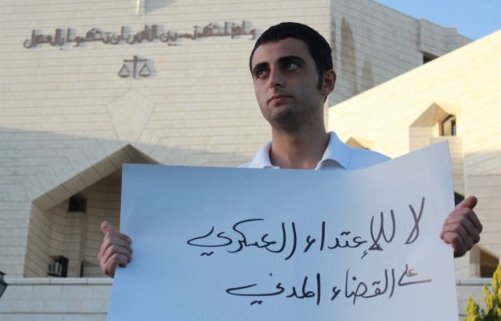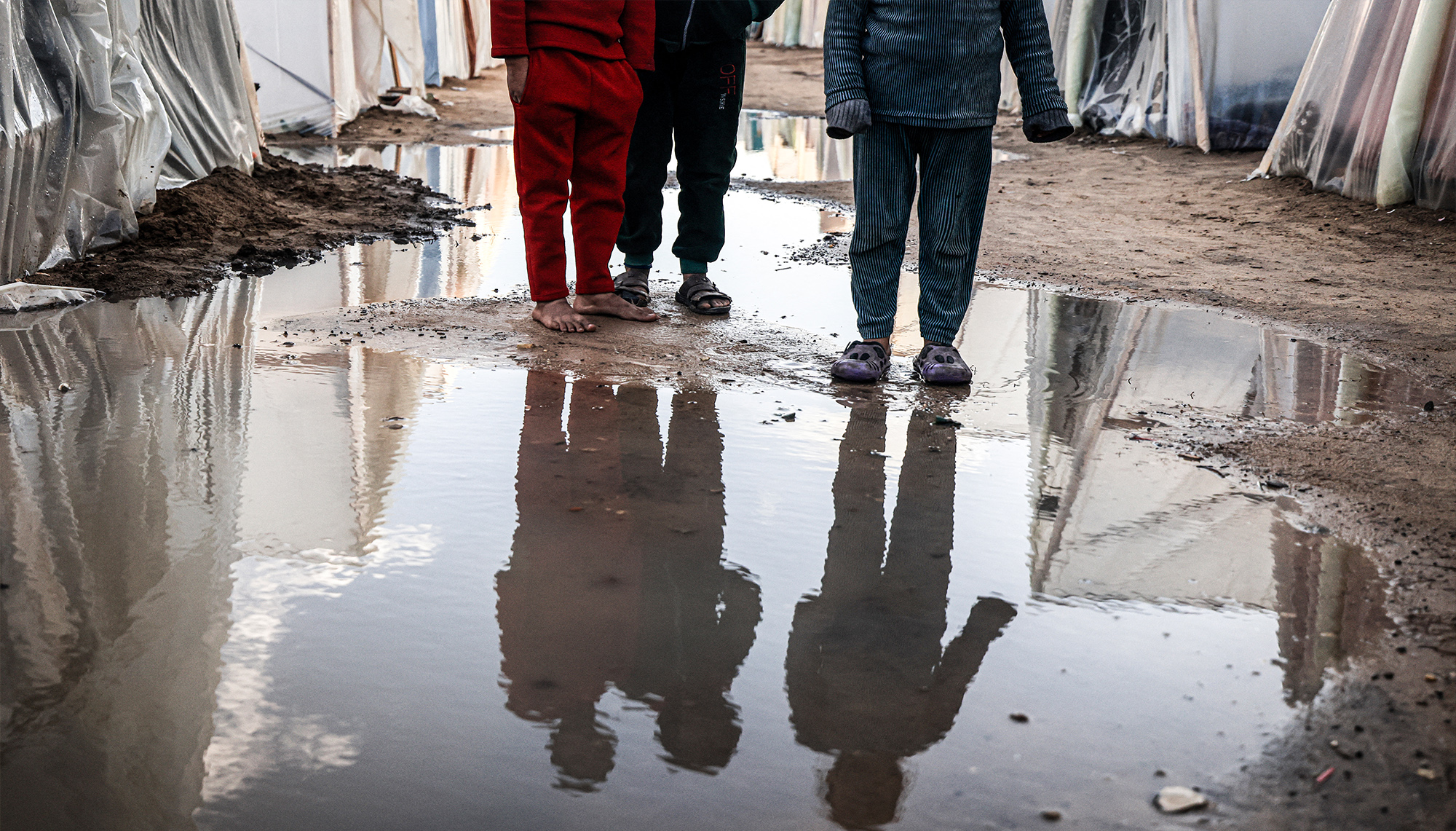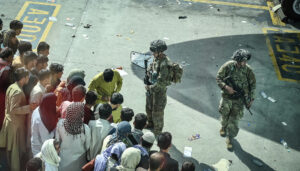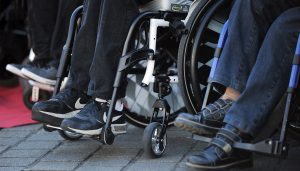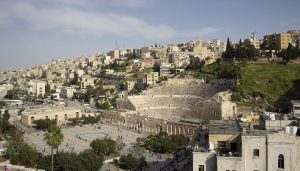By Sara Obeidat
Jordan’s amended anti terrorism law, approved by parliament in April and widely criticised by civil society and human rights groups for its potential violation of rights and threat to freedom of expression, went into effect earlier this month after being ratified by King Abdullah II.
The swift passing of this law in parliament and the mechanism of how it was amended suggests that the battle for human rights in Jordan is not a legal battle as much as it is a political one.
The law – originally introduced in 2006 following the 2005 terrorist attacks on three hotels in Amman – includes many loose terms when defining what constitutes terrorism and does not give specific criteria for what can be considered a terrorist act, according to rights activists and legal experts.
For example, acts that “cause disorder by disrupting public order” can be considered terrorist acts. This is dangerous considering that at a time not too long ago 300 protesters were arrested and 162 of them were tried in Jordan’s State Security court. The passing of such a law threatens Jordanians exercising their political and civil rights. For instance, “disturbing relationships between Jordan and a foreign country” can be considered a terrorist act. Therefore, if a group in Jordan decided to protest in solidarity with activists or journalists imprisoned in Egypt, their actions could fall under a “terrorist act”. This would also apply to, say, an organized initiative promoting the Boycott, Divestment, and Sanctions campaign (BDS) against the Israeli occupation in Palestine. So if a student group decided to launch a nationwide initiative protesting the import of Israeli mangoes and avocados, their actions could fall under “terrorism” since they may cause tension between Jordan and Israel.
Those who use the Internet or media outlets to promote “terrorist” thinking can be prosecuted under the law as well. And since the law does not clearly define “terrorism” and distinguish it from legitimate resistance, the administrator of a website or facebook group urging for Palestinian resistance for instance could be considered a terrorist. The law also incorporates crimes such as looting or harming property – acts that have been already addressed in the Jordanian penal code- as acts of terrorism. These are charges the government often used against protesters.
The amended law also states that forbidding a constitutional authority from doing its job could also be considered a terrorist act. Such a statement is ambiguous enough to prosecute acts of civil disobedience. If a group of protestors decided to block the entrance to Jordan’s Parliament in protest of its inability to effect change, the prosecutor would have the right to arrest them under the anti terrorism law.
this law allows the government to control all forms of resistance even when it is non violent
Clearly, this law allows the government to control all forms of resistance even when it is non violent. Non-violent resistance is a key tool for safeguarding political expression, freedom of speech, and human rights of citizens.
The problem does not only lie with the vague definition of terrorism, but also with that these supposed terrorists, or anyone interested in political expression, will be prosecuted by military judges in the State Security Court instead of regular courts. Jordan’s State Security Court was often criticized by Human Rights organizations for violating basic guarantees of fair trial for civilians. After numerous protests, constitutional amendments passed in 2011 restricted the cases in which civilians can be tried before military judges, and the corresponding law was amended last year to reflect that. The only cases in which civilians can be tried by military judges are treason, espionage, terrorism, drugs, and currency counterfeit. (Section (2), Article 101 of the Jordanian constitution).
Jordan’s State Security Court not only lacks independence and violates fair trial standards by trying civilians before military judges, but even in cases where the judges are civilian, the prosecutor is always a military officer.
Jordan signed the International Covenant for Civil and Political Rights, also known as the ICCPR, in 1972, and ratified it in 1975. General Comment 32 of the ICCPR establishes the right to equality before all courts and tribunals and to a fair trial, which is a key right to ensure the protection of civil rights and the safeguarding of the rule of law. The ICCPR also states that trying civilians under a military court may raise problems regarding the “equitable, impartial, and independent administration of justice concerned.” This is why the ICCPR goes on to say that “Trials of civilians by military or special courts should be exceptional, i.e. limited to cases where the State party can show that resorting to such trials is necessary and justified by objective and serious reasons, and where with regard to the specific class of individuals and offences at issue the regular civilian courts are unable to undertake the trials.”
trying civilians under military courts should be the exception and not the norm
This article implies that trying civilians under military courts should be the exception and not the norm, especially when those being tried are charged with crimes that can be handled by civilian judges. Looking at the the five exceptions that allow civilians to be tried in military courts, many of these crimes are already covered under the Jordanian penal code and can be tried in civilian courts.
In most democratic nations, civilians are tried before civilian courts where their cases are heard by civilian judges even where they are charged with terrorist acts. Timothy McVeigh, the American terrorist who blew up a Federal building in Oklahoma, was tried in the US District Court in Denver, a civilian court. Andres Breivik, the Norwegian terrorist and perpetrator of the 2011 Norway attacks, was tried in the Oslo District Court, a civilian court as well. Trying terrorists or suspected terrorists in Jordan’s State Security Court undermines the authority of the regular judiciary.
Earlier this month, Jordan’s State Security Court sentenced a number of political activists to three months in prison on charges of “Lese Majeste” and undermining the regime. Numerous political activists still face trial before the State Security Court for protests they were part of in 2012. Perhaps the amended anti-terrorism law does not bring much that’s new but it expands the State Security Court’s power and extends it to a wider range of acts. It not only halts the so-called promise of political reform, but it also aims to punish those who strive for it.
